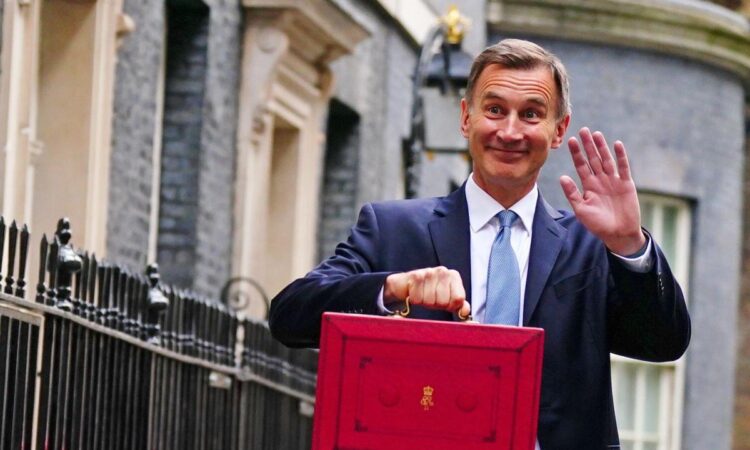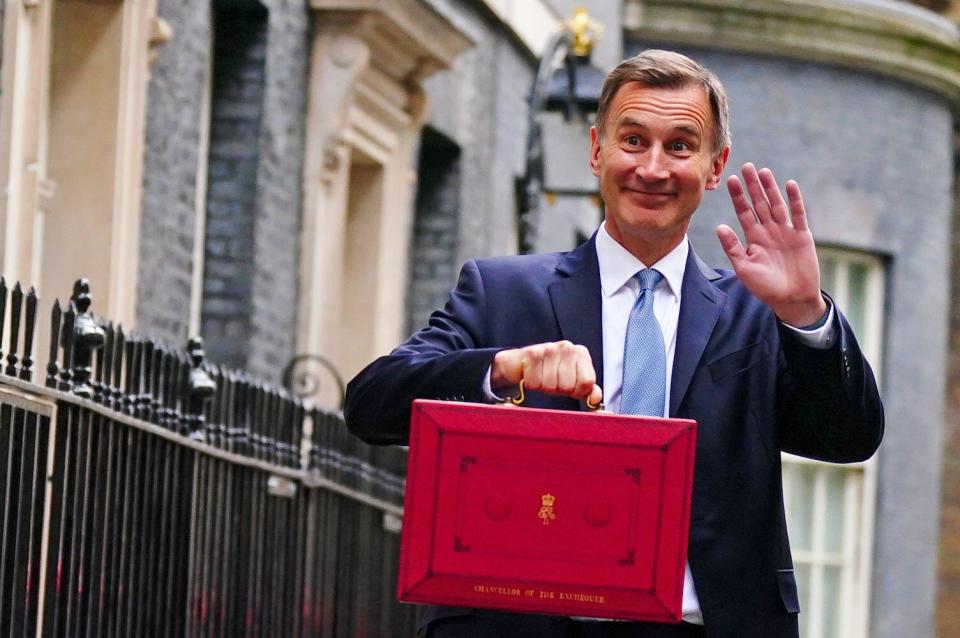

2024 is set to see a tax-cutting bonanza.
We’ve already had the first major change, with the slashing of national insurance. Now we’re hearing rumours of a raft of potential cuts as we go further into the year.
Unfortunately, this is nowhere near as good as it sounds.
National insurance
The national insurance cut itself may not leave you any better off.
On paper it’s a real boost. Class 1 national insurance contributions (NICs), which are paid on earnings between £12,570 and £50,270, were cut two percentage points, saving £349 a year for someone on a salary of £30,000, and £754 for anyone earning over the higher rate tax threshold.
Read more: The key money events for 2024, from NI changes to energy prices
However, in reality, for a lot of people this will be completely unwound by the impact of the freeze on income tax and NI thresholds. When you add the tax cut and the freeze together, anyone earning £26,000 or less is either worse off than they were before the thresholds were frozen — or no better off. Only higher earners will gain, according to research by think tank the Resolution Foundation.
Possible tax cuts
As this is an election year, the smart money is on some sort of tax cut to sweeten the pill as we go to the polls.
With a budget announced for March, there are some strong contenders on the tax cutting table, including halving the inheritance tax rate to 20%. This would be popular among the growing number of people whose estates are set to breach the allowances. However, it benefits a small, wealthy slice of the electorate, so doesn’t have really broad appeal, which makes it less likely to make the grade.
There’s also talk of a potential stamp duty cut — to help first time buyers — but given we’re in the middle of a temporary cut to this tax, it makes it far more difficult to pull this lever.
Read more: New Year’s Resolutions that will make you richer
Then there’s the possibility of an income tax cut. This would benefit more people, so might be considered worth the extra cost to the Treasury just before an election. The government might also be keen to ensure people are enjoying the benefits of the cut before they cast their vote, which might mean it could be introduced as early as the start of the next tax year. At the moment, it seems like this option is the front-runner.

What does this mean for you?
It would be a welcome move at a time when we’re being so squeezed by taxes, but it’s far less impressive than it first appears.
Given that there’s no suggestion of an early end to the freezing of tax thresholds, it means taxes will rise for those crossing tax thresholds, despite this cut.
Already in the current tax year there are 8% more basic rate taxpayers than there were three years ago, 41% more higher rate taxpayers and 99% more additional rate taxpayers.
The institute of Fiscal Studies estimates that a fifth of us will be paying 40% tax by the end of the freeze.
Read more: Why you could pay more tax in 2024 – and five ways to avoid it
It’s worth highlighting that crossing over into the higher rate doesn’t just mean more tax on your income, it also halves your personal savings allowance — which means basic rate taxpayers can earn £1,000 in interest before worrying about tax, but higher rate taxpayers can only make £500 before the tax kicks in, and for additional rate taxpayers it hits from the first pound of interest.
It means it will still be up to you to do what you can to bring your own tax bills down, whether that’s through tax-efficient savings and investments in pensions and ISAs, claiming all the tax relief you can on things like charity donations, or considering how you and your spouse hold savings and investments.
Because while all the talk at the start of 2024 has been about tax cuts, if you really want to pay less tax in 2024, you might need to take your own steps.
Watch: Rishi Sunak says he will ‘reward’ tightening benefits by cutting taxes
Download the Yahoo Finance app, available for Apple and Android.






